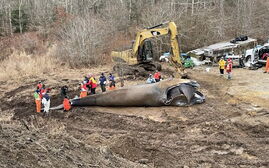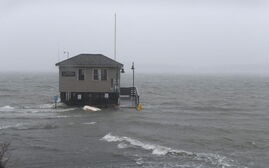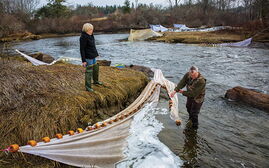Processing Your Payment
Please do not leave this page until complete. This can take a few moments.
- News
-
Editions
-
- Lists
-
Viewpoints
-
Our Events
-
Event Info
- Women's Leadership Forum 2025
- On the Road with Mainebiz in Bethel
- Health Care Forum 2025
- On The Road with Mainebiz in Greenville
- On The Road with Mainebiz in Waterville
- Small Business Forum 2025
- Outstanding Women in Business Reception 2025
- On The Road with Mainebiz in Bath
- 60 Ideas in 60 Minutes Portland 2025
- 40 Under 40 Awards Reception 2025
- On The Road with Mainebiz in Lewiston / Auburn
- 60 Ideas in 60 Minutes Bangor 2025
Award Honorees
- 2025 Business Leaders of the Year
- 2024 Women to Watch Honorees
- 2024 Business Leaders of the Year
- 2023 NextUp: 40 Under 40 Honorees
- 2023 Women to Watch Honorees
- 2023 Business Leaders of the Year
- 2022 NextUp: 40 Under 40 Honorees
- 2022 Women to Watch Honorees
- 2022 Business Leaders of the Year
-
-
Calendar
-
Biz Marketplace
- News
-
Editions
View Digital Editions
Biweekly Issues
- April 21, 2025 Edition
- April 7, 2025
- March 24, 2025
- March 10, 2025
- Feb. 24, 2025
- Feb. 10, 2025
- + More
Special Editions
- Lists
- Viewpoints
-
Our Events
Event Info
- View all Events
- Women's Leadership Forum 2025
- On the Road with Mainebiz in Bethel
- Health Care Forum 2025
- On The Road with Mainebiz in Greenville
- On The Road with Mainebiz in Waterville
- + More
Award Honorees
- 2025 Business Leaders of the Year
- 2024 Women to Watch Honorees
- 2024 Business Leaders of the Year
- 2023 NextUp: 40 Under 40 Honorees
- 2023 Women to Watch Honorees
- 2023 Business Leaders of the Year
- + More
- 2022 NextUp: 40 Under 40 Honorees
- 2022 Women to Watch Honorees
- 2022 Business Leaders of the Year
- Nomination Forms
- Calendar
- Biz Marketplace
Maine will explore 'ropeless' lobstering gear with help of $5M in grants
 File photo / New England Aquarium, NOAA
A right whale female named Fission is seen here with an unnamed juvenile male whale during an aerial survey over southern New England waters in March 2023.
File photo / New England Aquarium, NOAA
A right whale female named Fission is seen here with an unnamed juvenile male whale during an aerial survey over southern New England waters in March 2023.
Maine has received over $5 million in grants to help develop lobstering gear that avoids tangling with whales — and may be required by federal law in the years ahead.
Traditional gear includes ropes that connect lobster traps on the seafloor to buoys on the surface, but the lines pose a hazard to the North Atlantic right whale, an endangered species. Experimental, "ropeless" equipment eliminates the use of the vertical lines, and two grants from the National Fish and Wildlife Foundation will fund further research into the new technology.
An award of $2 million to the Maine Department of Marine Resources will support the evaluation of geolocation systems that use sound to help fishermen spot where their traps lie underwater.
Beginning next year, fishermen will participate in testing the technology, recording data on the time spent locating gear, the range of detection and the effectiveness of the technology.
Information from the gear location technology testing will be shared with manufacturers to support product improvements and with regulators evaluating options for reduction of risk to whales.
A second award of $3.05 million to the DMR will support testing of technology that retrieves lobster traps from the bottom without the use of vertical lines. The program will involve the establishment of the Maine Innovative Gear Library to increase access to alternative types of gear, as well as an outreach program that engages fishermen in the research.
Gear will be loaned to commercial lobstermen who will integrate new gear into their existing operations. Regional “hubs” will be established to distribute gear, provide education and training on gear use, and to gather feedback on the operability of different gear types.
The initial Maine Innovative Gear Library inventory has been made available for the program through an agreement with the Nature Conservancy, which has donated over $100,000 worth of alternative gear to support the MIGL.
The DMR said it will work with Maine Sea Grant to facilitate state-wide coordination of the program. Regional partners will include the Island Institute, Maine Center for Coastal Fisheries, Maine Coast Fishermen’s Association, the Sunrise County Economic Council, and the Gulf of Maine Lobster Foundation.
DMR Commissioner Patrick Keliher. “It is my goal to make sure we know what gear works, and more importantly what doesn’t work, so when future draft federal regulations come forward, we can draw on the real-world experience of fishermen when determining what the next steps should be.”













0 Comments